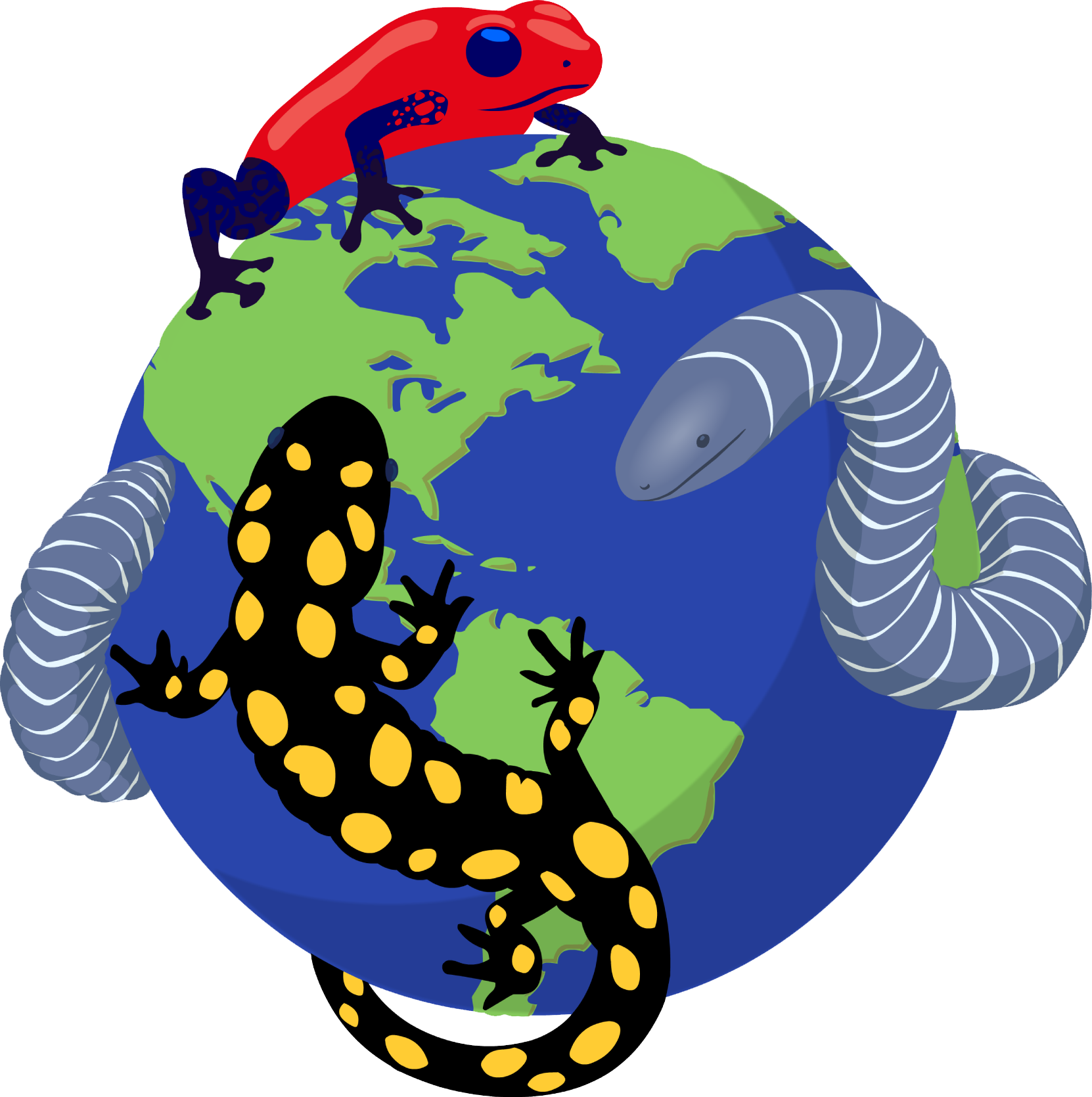|
Description
This species is a perennibranchiate form that maintains permanent larval morphology. E. waterlooensis has a mixture of morphological characters which set it apart from the rest of Eurycea. These include: the absence of external eyes - no image-forming lenses but instead small subdermal eye spots; its characterization as a perennibranchiate; the presence of 12 costal grooves; limbs proportionately smaller than in its two closest relatives - E. rathbuni and E. robusta; and weakly developed tail fins - the ventral section of the tail fin is present only on the posterior half and the dorsal section is nearly absent on the anterior half. This species has an extended snout and a shimmering, lustrous white appearance due to the reflective connective tissue that lies beneath its transparent skin. Occasionally, shades of lavender are exhibited, and a row of iridophores sometimes can be found along the sides of body and tail.
Distribution and Habitat
Country distribution from AmphibiaWeb's database: United States U.S. state distribution from AmphibiaWeb's database: Texas
E. waterlooensis has an extremely limited distribution. It has been discovered in three of the four outlets of Barton Springs in Austin, Texas. The species is thought to be restricted to the subterranean cavities of the Edwards Aquifer, and so the individuals found at the outlets are believed to to have been flushed out of the aquifer accidentally.
Life History, Abundance, Activity, and Special Behaviors
Diet includes at least ostracods, copepods, amphipods, and aquatic plants. In captivity, it readily eats a variety of small invertebrates. Captive individuals also enjoy crawling out of water and adhering to the wet glass of the aquarium walls with their flattened tails. They spend many minutes at a time out of water if humidity nears 100%.
Trends and Threats
E. waterlooensis has recently been included in the City of Austin's captive breeding program along with the endangered E. sosorum. Human disturbances at Barton Springs are likely to have less impact on the subterranean E. waterlooensis than surficial E. sosorum, but it has still been negatively affected by development and increasing siltation.
Relation to Humans
This is a salamander that has been discovered in a highly urban area. Its discovery in the same place as the discovery of an earlier species has alerted the local citizens and led to substantial discussion concerning biodiversity preservation and habitat conservation.
Possible reasons for amphibian decline General habitat alteration and loss
References
Hillis, D.M., Chamberlain, D.A., Wilcox, T.P., and Chippindale P.T. (2001). ''A new species of subterranean blind salamander (Plethodontidae: Hemidactyliini: Eurycea: Typhlomolge) from Austin, Texas, and a systematic revision of central Texas paedomorphic salamanders.'' Herpetologica, 57(3), 266-280.
Originally submitted by: Brian Petirs (first posted 2001-10-01)
Edited by: David B. Wake (2021-04-27)Species Account Citation: AmphibiaWeb 2021 Eurycea waterlooensis: Austin Blind Salamander <https://amphibiaweb.org/species/5870> University of California, Berkeley, CA, USA. Accessed May 16, 2025.
Feedback or comments about this page.
Citation: AmphibiaWeb. 2025. <https://amphibiaweb.org> University of California, Berkeley, CA, USA. Accessed 16 May 2025.
AmphibiaWeb's policy on data use.
| 




 Raffaëlli Account
Raffaëlli Account Map of Life
Map of Life